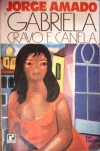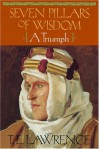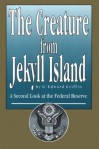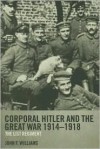Currently reading
GORE VIDAL: A Colossus Unlike Any Other

During his lifetime, Gore Vidal established a fine reputation as a very versatile, inventive writer. Novels, tele-scripts (in the early days of TV in the 1950s, Vidal made a name for himself as a scriptwriter for many of the live teledramas of the era), movie scripts, plays (one of them, "The Best Man" was a Broadway hit in 1960), and essays. Vidal was also a wit, polemicist, gadfly, and socio-political critic unlike any other. Whether you encountered him on any of the popular TV talk shows (e.g. The Dick Cavett Show or The Tonight Show with Johnny Carson), documentaries in which his considerable knowledge of politics, history & literature were given free rein, public lectures and interviews he gave, or his books, Gore Vidal was someone you would not soon forget.
Jay Parini, who had known Vidal over the last 30 years of his life, has crafted a first class, rich, comprehensive, and well-rounded biography. This is a work that was developed throughout Parini's relationship with Vidal. Indeed, Vidal had granted Parini full access to all his papers and access to many of Vidal's closest friends in the literary, political, and cinematic worlds. And for Gore Vidal --- whose writing career extended from the publication of his first novel ("Williwaw" based on his wartime experiences with the U.S. Army in the Aleutian Islands) in 1946 to the publication of his last novel, "The Golden Age" in 2000 ---- his circle of friends was amazingly extensive, from Amelia Earhart (who had a close relationship with his father, a West Point graduate and pilot who was a pioneer in the aviation industry and had worked for FDR in the early days of the New Deal), to Eleanore Roosevelt, John & Jacqueline Kennedy, Tennessee Williams, Paul Newman & Joanne Woodward, Claire Bloom, Susan Sarandon & Tim Robbins, Anthony Burgess, Federico Fellini, Italo Calvino, Christopher Isherwood, Andre Gide, Thomas Mann, Norman Mailer, and Hillary Clinton. Just to mention a few.
As a Gore Vidal fan of many years standing, I confess to not having given much thought to his personal life while he was alive. His novels, essays, and his public persona are what drew me to this remarkable man. He was the type of person who was so amazingly erudite, funny, and astute that I'd find myself thinking about some of the issues he touched upon in public forums and interviews long after being exposed to them. This is not to suggest that I agreed or agree with all of Gore Vidal's positions on life, politics, history or literature. BUT he had a personality and a ferocious, far-reaching brilliance that never ceased to fascinate me. He was never dull. Indeed, I was fortunate enough to have once met Gore Vidal at an interview he gave at the Smithsonian Institution about his life and career at the time "The Golden Age" was published. After the interview, he autographed my copy of his novel and all I can remember about the experience was how awestruck I was by his presence.
The biography traces the arc of Vidal's life from his birth at the cadet hospital at West Point in 1925 (where his father was the U.S. Army's first instructor of aeronautics), through his formative years in Washington DC (where he spent considerable time with his maternal grandparents; his grandfather Thomas Gore, had been a Senator from Oklahoma, and played a considerable influence on the young Gore), prep school at Exeter, his wartime service, and his steady growth and development as a writer from the early postwar years to the early 21st century.
One of the best features of "EMPIRE OF SELF: A Life of Gore Vidal" are the asides that Parini includes after each chapter which contain "brief first-person vignettes" and "recollections of moments" in Parini's friendship with Vidal that are especially illuminating about Vidal on a deeply personal level. Anyone with even the slightest interest or curiosity about Gore Vidal will love this book. I highly recommend it.
 4
4













